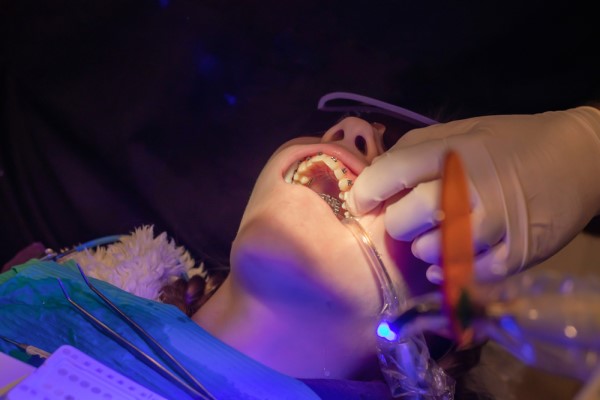How Dental Bonding Is Good for a Chipped Tooth

Some dental problems that can necessitate dental bonding may not appear to be a significant matter at first, but they can become serious if left untreated. For example, if you have a chipped tooth, it may not severely impact the appearance of your smile or bite functionality. However, if the tooth is not restored with a procedure like dental bonding as quickly as possible, the tiny chip might develop into a larger, more dangerous crack, fracture, or break. For many individuals, tooth bonding can rapidly and successfully repair a chipped tooth while preserving the natural tooth structure.
Overview of dental bonding
A biocompatible combination of finely ground acrylic and quartz-like particles makes up tooth-colored composite resin. One of the most appealing features of the resin is that it can be custom tinted to match every tooth's unique color and tone. It may also be firmly bonded to healthy tooth structures, making it a viable option for restoring worn or broken teeth. Bonding involves applying resin to the chipped area and shaping it to fit the entire contour of the tooth. The resin becomes nearly indistinguishable from the rest of the tooth once it has been set and polished.
The bonding procedure
Dental bonding is a relatively easy and uncomplicated treatment that takes anywhere from 30 minutes to an hour to complete. Patients who need more than one tooth bonded may need to schedule multiple visits.
The dentist generally uses a color guide to identify which color best fits the affected tooth. The composite resin color will then be chosen based on the selected shade. The dentist will lightly scrape and abrade the tooth's surface as part of dental preparation. After that, a conditioning liquid is applied to the tooth to help the substance bond better to the etched surface.
Finally, the tooth-colored resin is placed, molded, and carved by the dentist until the desired shape and aesthetic appearance are achieved. A curing procedure is done afterward, where the material is hardened using ultraviolet light or a laser until it is solid. After that, the dentist will polish the tooth, clean it up, and outline it even more. Since the bonded tooth must fit in with the other teeth in terms of overall color, brightness, and shine, the refining procedure necessitates a keen eye for detail and aesthetics.
Tips for aftercare
Patients should care for their bonded teeth as they would their natural teeth. When kept clean, a bonded tooth, like a natural tooth, will be stronger and healthier for much longer. To preserve the bonded tooth against discoloration, reduce smoking and consuming stain-causing drinks like tea and coffee.
Professional care from a dental hygienist is highly recommended for those who have had substantial bonding work done. Such patients should get have their teeth cleaned twice a year or quarterly by a hygienist who is familiar with bonding maintenance. They should know how to safeguard the bonding to preserve its beauty and extend its longevity.
In conclusion
A chipped tooth might not usually necessitate significant treatment. Your dentist can perform dental bonding for a natural-looking smile. To learn more about the procedure, contact the dental office to make an appointment with the general dentist.
Request an appointment here: https://riverfallsfamilydental.com or call River Falls Family Dental at (812) 962-7342 for an appointment in our New Albany office.
Check out what others are saying about our dental services on Yelp: Dental Bonding in New Albany, IN.
Related Posts
General dentists use bonding to help repair damaged teeth. What is bonding, and how is it used to repair teeth? Keep reading for an overview of what bonding is and why it is used as a treatment method. This type of procedure is very useful for many different dental issues. Your dentist will be able to…
Dental bonding is a reversible dental procedure that involves using a composite resin material to rebuild and restore teeth. The composites used can be matched with the color of the patient’s teeth, allowing restorations made with them to blend in.Dental bonding has cosmetic and restorative uses in dentistry. Unlike other popular restorations dentists use, its…
If you are looking to make improvements to your smile, you may want to consider dental bonding. This cosmetic dentistry procedure uses a composite resin material to make repairs to teeth and enhance the appearance of a person's smile. Bonding can be used to correct various cosmetic issues, including chips, gaps, discoloration, and even misshapen…
Dental bonding is a common procedure in which the dentist uses a tooth-colored material called resin to fill in gaps and repair cracked or chipped teeth. Though bonding is a safe, low-maintenance procedure, it is not appropriate for all teeth or all patients who need a tooth repaired. When performed correctly, this option is a…
